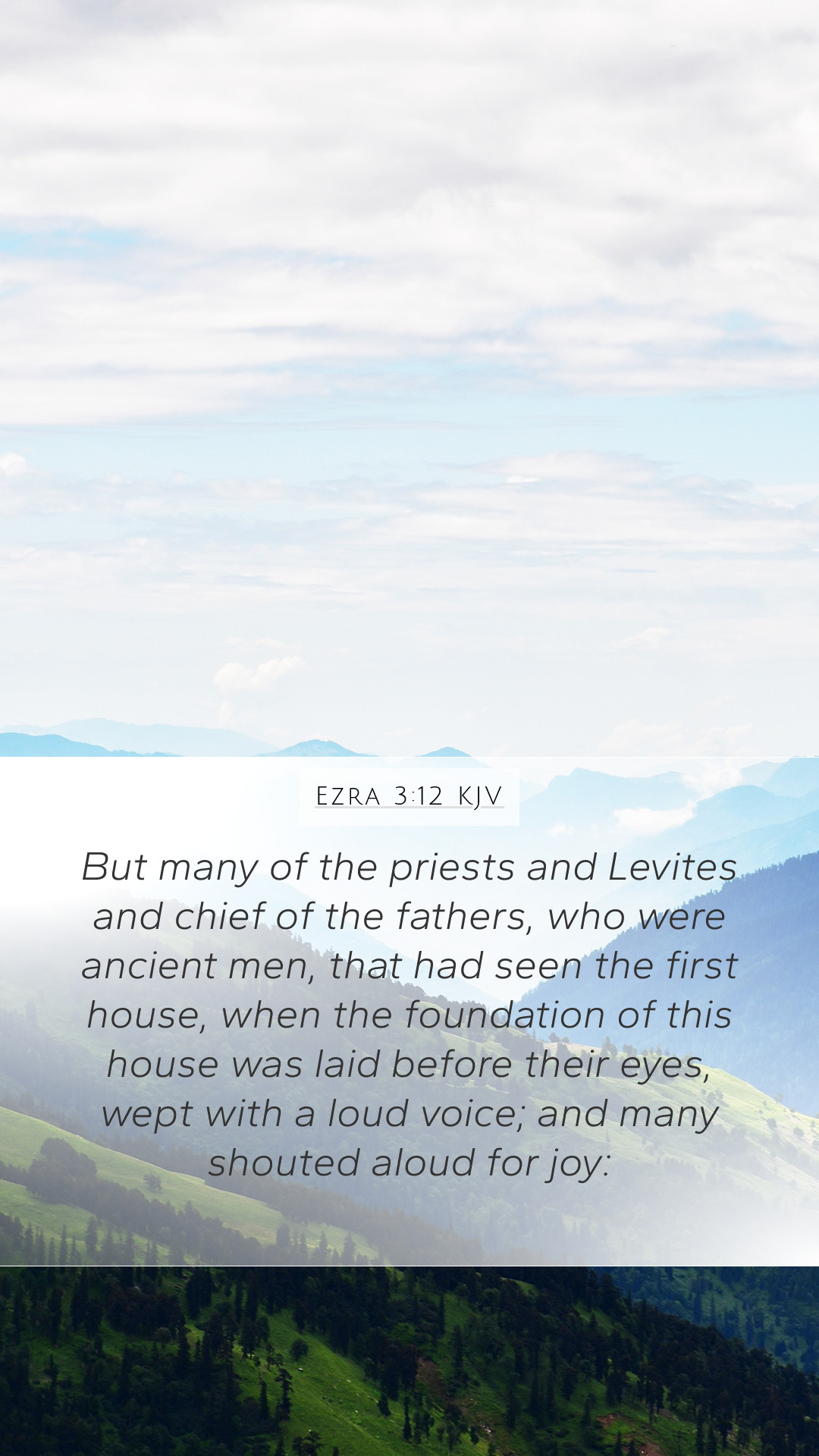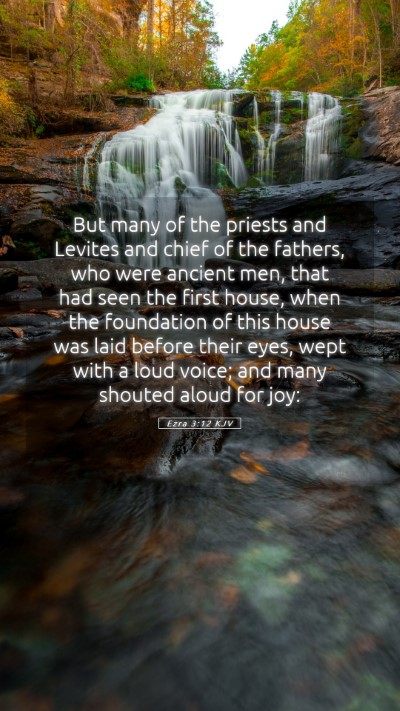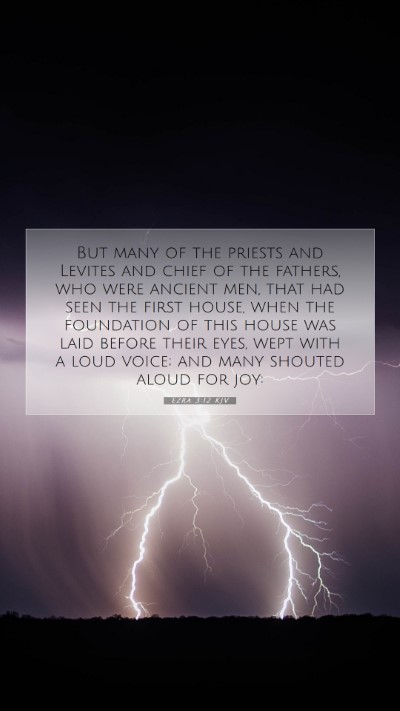Old Testament
Genesis Exodus Leviticus Numbers Deuteronomy Joshua Judges Ruth 1 Samuel 2 Samuel 1 Kings 2 Kings 1 Chronicles 2 Chronicles Ezra Nehemiah Esther Job Psalms Proverbs Ecclesiastes Song of Solomon Isaiah Jeremiah Lamentations Ezekiel Daniel Hosea Joel Amos Obadiah Jonah Micah Nahum Habakkuk Zephaniah Haggai Zechariah MalachiEzra 3:12 Meaning
What is the meaning of Ezra 3:12?
But many of the priests and Levites and chief of the fathers, who were ancient men, that had seen the first house, when the foundation of this house was laid before their eyes, wept with a loud voice; and many shouted aloud for joy:
Ezra 3:12 Bible Verse Meaning
Understanding Ezra 3:12
Ezra 3:12 provides a profound insight into the emotional landscape of the Israelites as they returned from exile and began to rebuild the temple in Jerusalem. This verse captures the juxtaposition of joy and sorrow experienced by the people as they observed the old temple's foundations laid before them. This analysis draws from the insights of renowned public domain commentaries such as those by Matthew Henry, Albert Barnes, and Adam Clarke, enhancing our bible verse understanding and bible verse meanings.
Verse Context and Background
The historical context of Ezra 3:12 is crucial to understanding its emotional depth. After a lengthy Babylonian exile, the Jewish people returned to Jerusalem to restore their homeland and worship practices. They laid the foundation of the new temple, a moment meant to symbolize hope and renewal.
Verse Text
Ezra 3:12: "But many of the priests and Levites and chiefs of the fathers, who were ancient men that had seen the first house, when the foundation of this house was laid before their eyes, wept with a loud voice; and many shouted aloud for joy."
Interpretation and Analysis
Emotional Response to Restoration
This verse illustrates the complex emotional reactions of the people witnessing the foundation of the new temple. According to Matthew Henry, the ancient men who had seen Solomon's grand temple understood the magnitude of what was lost; their tears symbolize a deep mourning for the past.
Albert Barnes emphasizes that while the returning exiles celebrated the presence of God's promise to restore them, they could not escape the sorrow of their current reality compared to the former glory. This highlights the duality of their bible verse interpretations—the heartaches of loss intermingle with the joy of restoration.
Community and Individual Reflection
Adam Clarke points out that the weeping of the old men showed a personal connection to the temple's significance. Their understanding of Scripture reflects a key lesson: restoration is often a process laden with bittersweet memories. Each of the individuals present witnesses both the new beginnings and the echoes of their past failures, which brings them to a place of emotive reflection.
Significance of the Temple Foundation
The laying of the temple's foundation signifies more than just physical rebuilding. It represents spiritual renewal, reconciliation, and divine promise. This moment stands as a crucial ceremonial act for the Israelites, rooted deeply in their bible study reflections and scriptural analysis.
- Faithfulness of God: The very act of laying the foundation delivers a message of hope that God is restoring His people and their worship practices.
- Reflection on Past Mistakes: The weeping indicates a lesson learned from history. The former temple's destruction serves as a reminder to remain faithful to God.
Applying Ezra 3:12 Today
For modern readers, this verse encourages a balanced approach to applying Bible verses to daily life. It teaches that in times of transition or rebuilding, we may experience a mix of joy and sorrow. Acknowledging the past while looking forward to God’s new workings can help guide us through our personal or communal restoration.
Reflection Questions for Bible Study Groups
- What foundations are we laying in our spiritual lives that may evoke both joy and sadness?
- How can we learn from our past as we seek to build a new future grounded in faith?
- What role does community play in celebrating foundations and mourning losses together?
Cross References
- 2 Chronicles 36:23 - The call to rebuild the house of the Lord.
- Haggai 2:3 - Comparison of the new temple's glory to the former.
- Psalms 137:1-4 - The lament of the exiles regarding the loss of their homeland and worship.
Conclusion
Ezra 3:12 serves not merely as a historical account but as a profound bible verse commentary on the nature of human emotion, restoration, and the remembrance of divine faithfulness. Through the lens of grief and joy, we can grasp essential lessons that resonate through time, granting us insights into our spiritual journeys.


